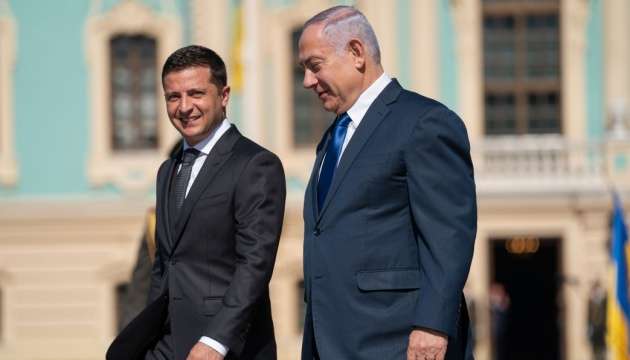Israel supplies Ukraine with air defence, Russia backs Iran

Ukrainian President Volodymyr Zelensky has confirmed that a U.S.-made Patriot air defence system, supplied via Israel, has been in Ukraine for the past month.
Two additional systems are expected to arrive in future months, a development signalling a significant shift in Israel’s approach to the Russia-Ukraine conflict as reported by Arab Weekly plus agencies on September 29th.
Kyiv has been urgently reinforcing its air defence capabilities to counter near-daily Russian missile and drone strikes, which frequently target critical energy and heating infrastructure. With winter approaching, Ukrainian officials fear Russia will once again attempt to cripple the country’s power grid.

“The Israeli [Patriot] system is operating in Ukraine. It has been operating for a month. We will receive two Patriot systems in the fall,” Zelensky told the press in a briefing.
The president’s remarks followed his New York visit, where he addressed the United Nations and had talks with U.S. President Donald Trump and other senior American officials.
For much of the war, Israel sought to remain neutral. After Russia’s full-scale invasion of Ukraine in 2022, Israel refrained from imposing sanctions on Moscow, unlike most of its Western allies. That position, however, has shifted as relations between Israel and Russia cooled. Moscow has deepened its ties with Iran—a relationship Dr. Alexander Dubowy, research director of the Institute for Security Policy said Russia will not relinquish easily—while the Kremlin has also sharply criticised Israel’s military operations in Gaza.
Zelensky also revealed that U.S. and Ukrainian delegations will have a series of meetings in September and October to discuss weapons purchases through various programmes, although he did not disclose the origin of the funding. He added that Kyiv has submitted a list of requested weapons to the US as part of a broader plan to acquire $90 billion in U.S. arms, an initiative he first stated in August.
Meanwhile, Russian Foreign Minister Sergey Lavrov launched a fierce attack on Israel during his address at the UN General Assembly, accusing it of destabilising the Middle East. He denounced Israel’s military campaign in Gaza and criticised operations in Iran and Qatar, while voicing opposition to proposals to annex the West Bank—an issue that has sparked wider debate about whether Israel risks damaging its regional ties.
Lavrov said Israel’s unlawful use of force against the Palestinians, along with its aggressive actions targeting Iran, Qatar, Yemen, Lebanon, Syria and Iraq, threatens to bombard the whole of the Middle East.
Lavrov also directed criticism at Western nations, accusing them of jeopardising diplomacy with Iran through the reinstatement of UN sanctions. He condemned the rejection of a joint Russian and Chinese proposal to extend the deadline, arguing that it laid bare the West’s policy of obstructing constructive solutions within the UN Security Council and its intent “to extract unilateral concessions from Tehran through blackmail and pressure.”
The developments underscore a reshaping of alliances: Israel moving closer to Western positions on Ukraine, Russia tightening its ties with Iran, and both conflicts—in Ukraine and the Middle East—intersecting on the global stage. Meanwhile, within Israel, domestic political pressures remain high, with Prime Minister Benjamin Netanyahu signalling progress on sensitive hostage negotiations, reflecting the challenges of balancing internal security demands with shifting foreign policy.
The Arab Weekly plus agencies, Maghrebi.org
Want to chase the pulse of North Africa?
Subscribe to receive our FREE weekly PDF magazine










